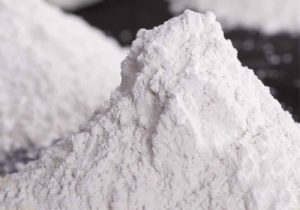
CP-10 Organoclay
CP-10 organoclay is a rheological additive made of organoclay. It is used in non-polar to moderately polar aliphatic and other solvent systems
Organoclay in Paint : Organic clay is a thickening rheological agent made of montmorillonite clay or bentonite raw ore as raw materials. Its main goal is to improve viscosity, prevent pigment sedimentation and increase its thixotropy.
When alkyd paint and oil are used together, the rheological properties of organic bentonite will be reflected. Our cp series organic bentonite can be used not only in water-based systems, but also in solvent based systems.
Organic bentonite can be well dispersed at normal temperature. It can be used as a gelling agent. It can be used in paint coatings as an additive to paint.
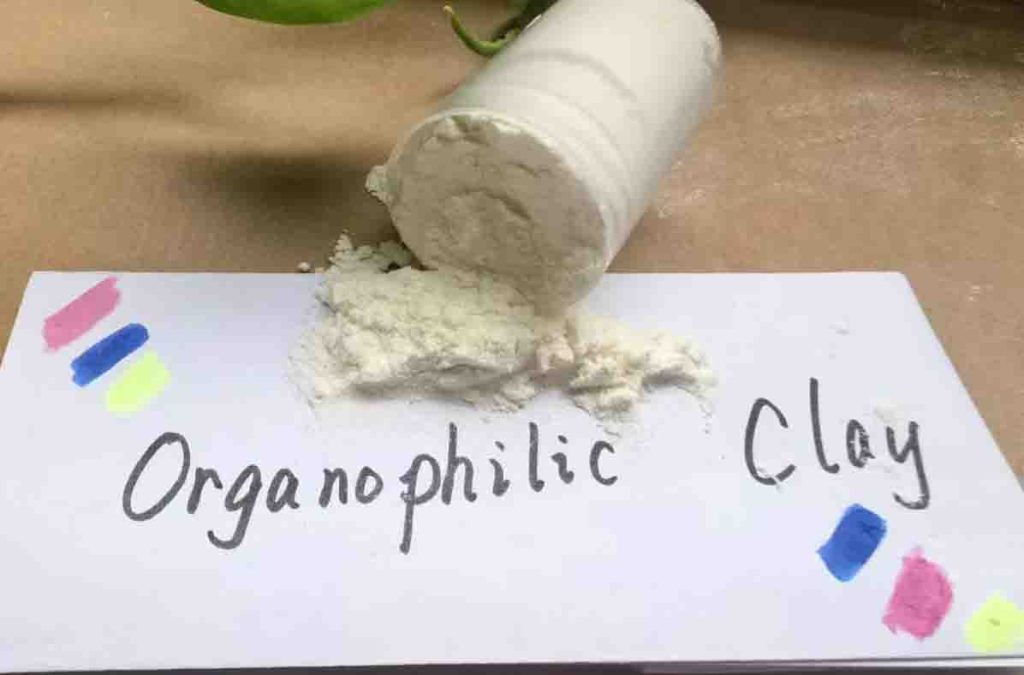

CP-10 organoclay is a rheological additive made of organoclay. It is used in non-polar to moderately polar aliphatic and other solvent systems

CP-MPZ organoclays is an modified bentonite that is used in solvent and resin systems ranging from non-polar to highly polar.

The CP-MPS rheology modifier is a type of organo clay rheological additive that is used in solvent and resin systems ranging from non-polar to high polarity.
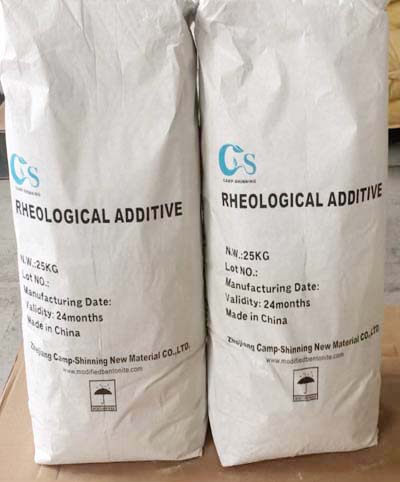
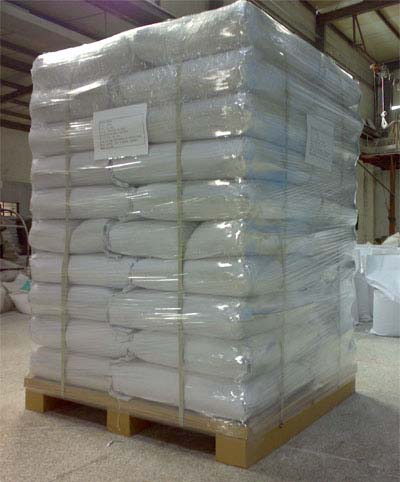
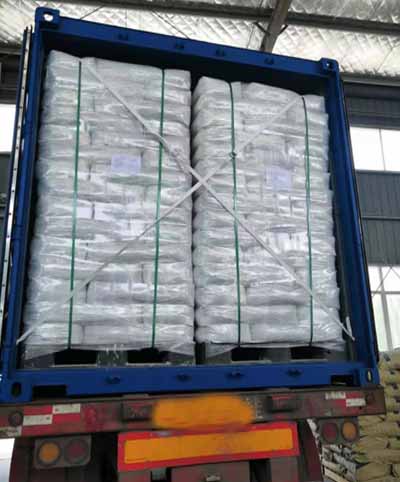
Organoclay in Paint : See what a difference Organoclay makes in your paints. It will increase viscosity, prevent pigment settling, and improve handling crispness, giving your paintings a more professional appearance and feel.With this additive, you’ll be able to create high-quality paints
Organoclay Supplier / Manufacturer :
Internet address: https://www.rheologymodifiers.com/
Email address: [email protected]
Whatsapp / Wechat: +86-13185071071
Organophilic Clay Supplier / Manufacturer :

CP-EW Organoclay for Water Based paint. It is primarily employed in water borne paint systems,such as latex paint. So it is a good water based additive in paints,coatings,grease etc.

CP-EWS Modified bentonite It is employed in a water-borne coatings system. CP-EWS organoclay outperforms CP-EW in terms of thixotropy, transparence, and dispersion.

CP-WBS Rheology Modifier is rheological modified bentonite. It is mostly employed in water-borne systems.


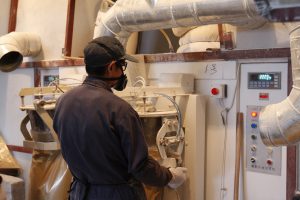
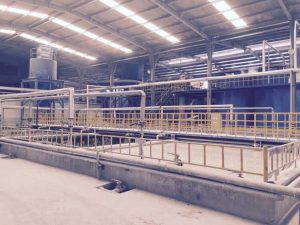


The Organoclay bentonite | Organophilic clay -specialized Zhejiang Camp-Shinning New Material CO.,LTD. and Hangzhou Camp-Shinning CO.,LTD. are subsidiaries of Camp-Shinning.
Camp-shinning concentrated on high value-added, high-technology organo bentonite series products, particularly in research, development, manufacturing, and sales of organic (solvent based organoclay) and inorganic bentonite (water based organoclay).
Our Organophilic bentonite clay finds widespread application in oil drilling mud, paint, coating, lubricating grease, adhesive, construction mortar, cosmetics, and waste water treatment, among other applications. A group of world-class professional users and distributors, such as SUN CHEMICAL,,SIEGWERK,LEHMANN &VOsS, and others, have acknowledged our dependable quality.
Current annual production of organic bentonite clay | organoclay is 20,000 metric tons, while refined bentonite production is 15,000 metric tons.
Our ISO 9001 quality system certification and IS014001 environmental management system certification, as well as our own mine with superior ore quality and production of proprietary technology, ensure the long-term quality and supply stability of our Organoclay bentonite | Organophilic clay.
Our mission is to provide users with superior Organoclay bentonite | Organophilic clay and services and to collaborate with them to achieve success and glory.
Internet address: https://www.rheologymodifiers.com/ and email address: [email protected]
Whatsapp / Wechat: +86-13185071071
Organoclay | Organophilic Clay CP-2 also named amine treated Bentonite.
In diesel oil based fluids,organophilic clay viscosifier CP-2 are used to increase carrying capacity and suspension properties, providing support for weight materials and improved cutting removal. Organophilic bentonite also aids in filter-cake formation and filtration control.
Properties
Composition Organically modified bentonite clay
Physical appearance Off white to tan free-flowing powder
Moisture content (105℃,2hr) ≤4%
Particle size (<76μm or 200mesh) ≥95%
Specific Gravity 1.6-1.8
Advantages
Effective viscosifier and gellant
Aids control of fluid loss to the formation
Increases emulsion stability
Improves cuttings carrying and hole cleaning capacity
Suspends weighting materials and other solids
Confers temperature stability to the fluid
Application
Base oil:
Diesel Oils
Crude Oils
Mineral Oils
Synthetic Oil
Viscosifying drilling Fluids:
Oil based drilling fluids
Invert emulsion fluids
Workover fluids
Completion fluids
Casing packs
Packer fluids
Spotting fluids
Package
Organoclay | Organophilic Clay CP-2 is packed in 50lb(22.7kg) or 25kg/bag or customized,multi-wall paper sacks or Kraft paper bag with PE liner or customized.
Storage
CP-2 Store in a dry, well-ventilated area with temperature of 0℃-30℃. Keep container closed. The quality guarantee period is 24 months.
Notice
The information on use is based on data which are believed reliable, but any recommendation or suggestion made is without guarantee or warranty, since the conditions of use are outside our control. All products are sold on the conditions that purchasers shall make their own tests to determine the suitability of such products for their purpose and that all risks are assumed by user. We disclaim any responsibility for damages resulting from careless or improper handling or use. Nothing herein is to be taken as permission, inducement or recommendation to practice any patented invention without a license.
Internet address: https://www.rheologicaladditive.com/ and email address: [email protected]
Whatsapp / Wechat: +86-13185071071
Organoclay in Paint
Organoclay in Paint
Organoclay thickener is an essential component of paint. Its properties range from moderate to exceptional. Traffic paints, for example, are frequently composed of organoclays with limited performance. This is due to the fact that these paints must preserve pigment suspension during storage, whilst other qualities are of lesser importance. In contrast, high-performance organoclays are important for industrial coatings, printing inks, and cosmetics. However, they must accomplish more than just thickening.
Organoclay in Paint
Organoclay in Paint is extensively used as a rheological ingredient in paints and varnishes. The rheological properties of the substance rely on wetness and shear. These organoclay compounds are known as high-performance hydrophilic organoclays.
These compounds are typically composed of 10% to 45% organoclay, a polar solvent (water or a combination of ethanol and water), and a variety of additional components. The components are introduced either sequentially or in varied quantities. The liquid is then sheared and vigorously mixed to produce a homogeneous gel-like substance. These substances are then evaluated for their stripping activity.
Organoclay in Paint
The incorporation of organoclay elements into paint can confer numerous advantages. These include a reduction in dispersion time and an increase in thermal stability. It also improves the paint’s resistance to drooping and settling. Additionally, high-performance organoclays can eliminate the requirement for additional additives.
Organoclays are most frequently employed in traffic paints and drilling fluids, but they have a wide range of additional applications. Their primary role in paints is to preserve the suspension of pigments during storage. Other features are less essential in this regard. Ink, industrial coatings, and cosmetics are examples of applications where high-performance organoclays are required.
Organoclay is a mineral composed of clay that has been biologically transformed. Organoclay is an excellent solvent-based thickener that can be used to suspend pigments and stabilize emulsions, among other applications. It is also utilized as a polymer nucleating agent.
Organoclay can also be utilized in the production of acrylic. The normal mixture for transparent paint was followed, however the inclusion of organoclay increased the paint’s consistency. This enhanced the paint’s adhesion characteristics and allowed for better color and surface fault concealing.
Organically modified layered silicates, Organoclay in Paint,such as organoclay, are efficient rheological modifiers in polymer matrix. It can also act as a therapeutic agent delivery vehicle. Polymer nanocomposites can be utilized to enhance the performance of numerous items, including paints.
Price of Organoclay in Paint
Organoclay in Paint is a material that can be included into paint recipe. The substance can be included into paints and can decrease the required dispersion time. It can be utilized in polar, aromatic, and aliphatic systems. Additionally, it is utilized in nitrocellulose lacquer.
Organoclay is a bentonite clay that has been changed biologically. Its benefits include pigment stabilization and suspension. Additionally, it can stabilize and thicken emulsions. In addition, it has multiple applications in paints and greases. Organoclay is a component of paints and lubricants.
Organoclay is utilized in two principal categories: modest and high-performance. Organoclay is utilized in low-performance applications such as traffic paints and drilling fluids. For these applications, pigment suspension is of the utmost importance, whereas other attributes are of lesser importance. On the other hand, high-performance coatings, printing inks, and cosmetics require high-performance organoclay. In these applications, the organoclay must possess a range of qualities in addition to thickening.
The addition of organoclay to paint can be used to effectively regulate the pH of the paint. Additionally, it can be utilized to improve the thixotropic qualities of paints. Nevertheless, the use of organoclay in paints has a number of drawbacks. For instance, it is harder to disseminate and more appropriate for aliphatic systems.
The genesis of organoclay
Organoclay is utilized to enhance the dispersing qualities of paint. It is utilized in the creation of paints containing aliphatic and aromatic alkyl chains. Additionally, it can be utilized in polar systems such as alcohols, ketones, and esters. In addition, it can be utilized in a variety of industrial processes, including those using nitrocellulose lacquer.
Organoclay is a kind of bentonite clay that has been chemically treated. It is most frequently employed as a thickener in solvent-based systems. It can also stabilize emulsions and suspend pigments. Organoclay’s chemical qualities make it a great choice for paints because it can sustain increased shear. Organoclay is also utilized in cosmetics like eyeshadow and lip gloss.
Organoclay’s rheological qualities are also utilized in paints. This material is disseminated in an organic solvent and can be utilized for various purposes. Various producers employ distinct grades of organoclay in their manufactured goods. Depending on the origin of the organoclay and the manufacturing procedure, these grades can vary.
Organoclay is an inorganic mineral in which a quaternary ammonium salt has been included. It is commonly employed as a rheological agent. There are a variety of grades of organoclay, which vary based on the origin and manufacturing method.
Organoclay is a rheology enhancer (Organoclay in Paint).
Organoclay Supplier / Manufacturer :
Internet address: https://www.rheologymodifiers.com/
Email address: [email protected]
Whatsapp / Wechat: +86-13185071071
Organophilic Clay Supplier / Manufacturer :

CP-180 organoclay is an organo clay rheological additive (modified montmorillonite) designed specifically for use in solvent-based systems

CP-34 organoclay is a modified bentonite that has been specifically designed for use in solvent-based systems.

CP-EDS modified bentonite is a kind of organo clay rheological additive. It is used in systems of medium polarity and high polarity system.

CP-992 Organophilic Clay, the wet process improved viscosifier and gelling agent . It is a rapidly dispersing.

CP-982 Organophilic Clay is an amine treated bentonite with a moderate temperature performance.

CP-150 Organophilic Clay is a self-activating organoclay that disperses easily and performs well in diesel, low aromatic mineral oil, modified vegetable oil, and synthetic base fluid formulations.
Organoclay in Paint